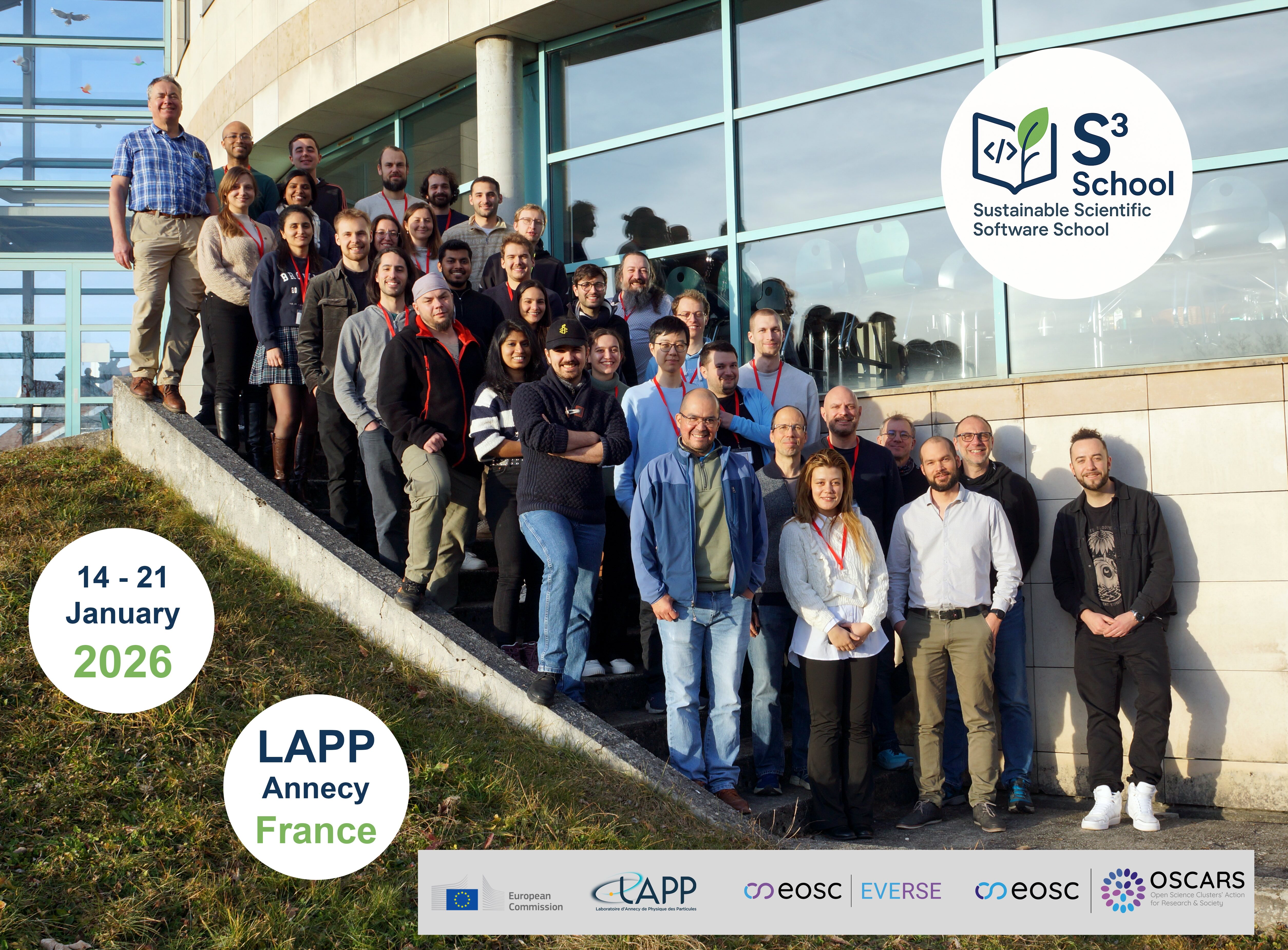The S³ School is a one-week training program designed to teach good and modern coding practices tailored for scientific software development.
Our goal is to empower researchers, scientists, and Research Software Engineers (RSEs) with the skills to build sustainable, open, and reproducible research software following recognized best practices.
Here are the resources for the school:
- lectures and materials here: S3 2026 Lectures
- GitHub organisation: https://github.com/s3-school

Context: Building Sustainable Research Software in the European Open Science Landscape
The S³ School is part of a broader European initiative to promote sustainable, high-quality research software within the framework of Open Science. This effort is supported by two key Horizon Europe projects: OSCARS and EVERSE.
OSCARS (Open Science Clusters' Action for Research and Society)
OSCARS brings together five Science Clusters — covering environmental sciences, life sciences, social sciences and humanities, photon and neutron science, and astronomy and particle physics — to strengthen their role in the European Research Area by consolidating their past achievements into lasting interdisciplinary FAIR data services and working practices across scientific disciplines and communities, and by fostering the implementation of Open Science projects and services.
EVERSE (European Virtual Institute for Research Software Excellence) focuses on creating a framework for research software and code excellence. Collaboratively designed by research communities across the five EOSC Science Clusters and national Research Software Expertise Centres, EVERSE aims to build a European network dedicated to Research Software Quality. The project emphasizes community curation, quality assessment, and best practices, contributing to high-quality, sustainable, and reusable research software.
Target Audience
-
Postgraduate students, early-career researchers, and junior RSEs at the start of their research or software development projects.
-
Researchers and scientists who regularly code, particularly those working in collaborative environments, and who want to improve their software development skills for open science and reproducible research.
Participants should:
-
Have basic knowledge of Python and shell command-line usage.
-
Bring a personal laptop with:
-
A Unix terminal,
-
Git installed,
-
An active GitHub account.
Key Information
-
Duration: 1 week
-
Participants: ~60
-
Instructors: ~10
- Registration is on a first come, first served basis. No additional selection process will be applied.
-
Format: in-person lectures, workshops & hands-on sessions, with satellite sites for remote participation.
-
Location: Beautiful Annecy , between lake and mountains!
Unique Experience
- 🚌Visit of CERN
- 🍽 Social dinner with instructors
- 🏡 Accommodation and daily lunches provided
- 📄 Collaborative publication: all participants will contribute to a joint article at the end of the school.
- 🎓 Certificate of Participation
- 🏅 Recognition on Apicuron — The platform to credit and acknowledge scientific contributions, for both instructors and participants.
Fees:
Includes accommodation, daily lunches, social events, all course sessions, online materials, and Apicuron recognition.
On-site participants: €588.50.
LAPP/LAPTH members : €245.30
Satellite site: €588.50
🏷️ Registration open until 14 November 2025
Extended deadline: registration open until 21 November 2025 !
Content from the EVERSE project and related initiatives.
